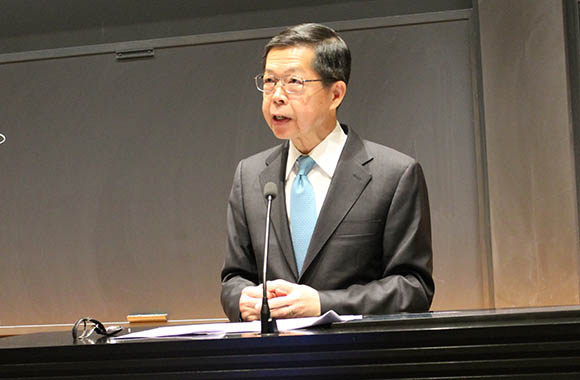
Managing Thailand’s Economy in a Global Financial Market
Today, a central banker’s expertise cannot stop at the borders of his country, Prasarn Trairatvorakul, governor of the Bank of Thailand, told Master of Advanced Management students on April 14. Part of his role is adapting to changing monetary policies in other countries, he said.

Trairatvorakul spoke to MAM students as part of the Colloquium in Advanced Management, which connects students to top business and political leaders for candid conversations.
“The repercussions on the rest of the world are testing the limits of macroeconomic management, especially for emerging market countries,” he said. “Whatever happens in the U.S. has a great bearing on the world financial market.”
By necessity, Thailand has developed policies to cushion its economy from waves of financial disruption generated abroad, Trairatvorakul said. He compared the policies to how the Dutch have created windmills and dikes to adapt to climate change.
“Floating homes can rise up and cope with the changing water levels,” he said. “We need to learn to live with the water and don’t fight it…. The focus is on strengthening the infrastructure to sustain it. [Global] financial integration is a choice. Countries become financially integrated because the perceived benefits outweigh the costs.”
